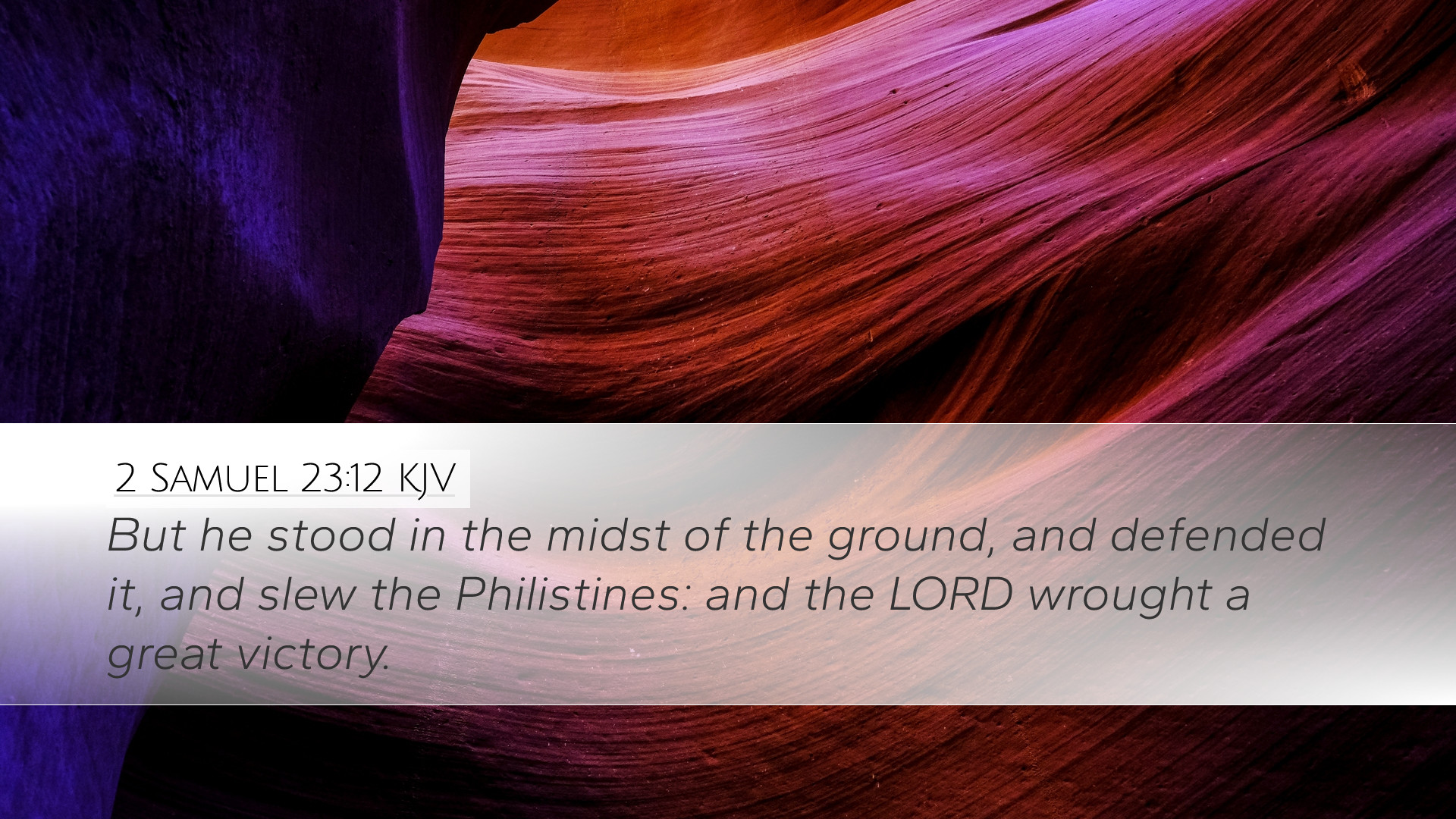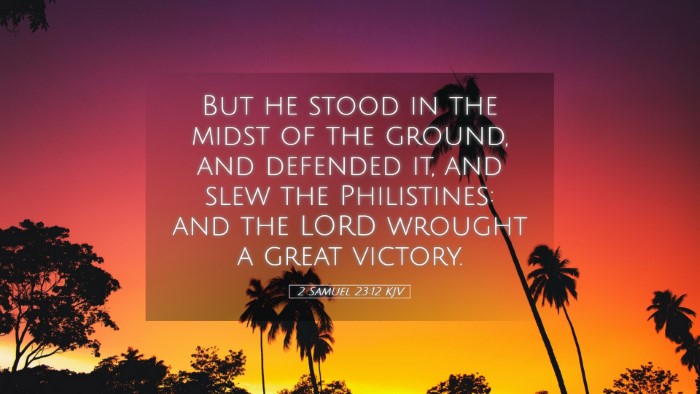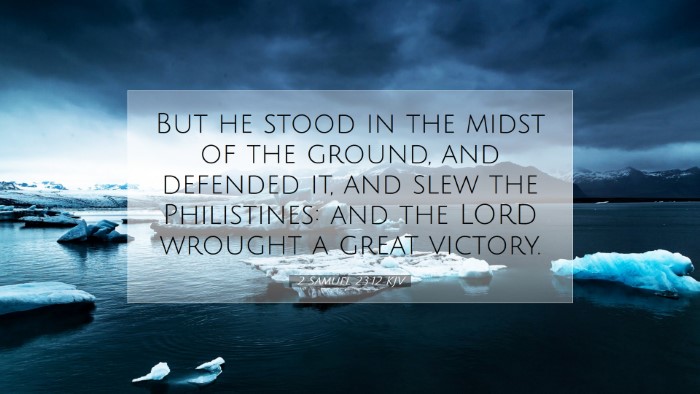Commentary on 2 Samuel 23:12
Verse Context: 2 Samuel 23:12 states, "But he stood in the midst of the ground, and defended it, and slew the Philistines: and the Lord wrought a great victory." This account is part of the final poetic tribute to David's mighty men, highlighting acts of valor that reflect not only personal courage but divine assistance.
Overview of the Passage
In this verse, we find a vivid portrayal of a heroic deed performed by Shammah, one of David's warriors. The setting indicates a scenario of desolation where Shammah stands alone against the Philistines in a field of lentils. The Israelites were at risk, and his defense was critical not only for preserving the crops but for the integrity and morale of Israel as a nation.
Theological Implications
This verse underscores several theological insights valuable for pastors and scholars:
- Divine Assistance: Shammah's victory is attributed directly to the Lord's involvement. This emphasizes the divine favor and supernatural support that God grants to those who courageously stand firm, reflecting the principle found throughout Scripture that God empowers those who take a stand for righteousness.
- Courage in Adversity: The act of standing alone against overwhelming odds serves as an essential lesson for believers facing spiritual battles. The call to stand firm in faith is echoed in Ephesians 6, where Paul urges believers to put on the full armor of God.
- Value of the Ordinary: The defense of a simple lentil field speaks to the importance of valuing mundane but significant aspects of life. It illustrates the idea that God's work can manifest in protecting what may seem insignificant but is vital to His people.
Insights from Public Domain Commentaries
Matthew Henry's Commentary
Matthew Henry highlights the significance of standing one's ground. He emphasizes that Shammah’s bravery is noteworthy not only for the physical outcome but also for the spiritual implications, drawing parallels to the believer's battle against sin and evil. Henry affirms the notion that wherever God assigns us, we must remain faithful, asserting that victory often requires steadfastness amid trials.
Albert Barnes' Notes
Barnes focuses on the context of this battle against the Philistines and points out the isolation of Shammah’s stand. He interprets this act as a reflection of loyalty to David and the covenant community of Israel. Barnes elaborates on the social, political, and spiritual stakes involved, asserting that a leader's fate often rests upon the faithfulness of those who support him. The act of defending a field becomes a metaphor for defending one's faith and community in the face of opposition.
Adam Clarke's Commentary
Clarke provides a practical application of this scripture, encouraging believers to defend their personal and communal faith grounds. He discusses the significance of Shammah’s act of valor in terms of the moral urgency he felt to protect what was entrusted to him. Clarke notes that such moments demand a faithful response as they can lead to significant consequences, both for the individual and the faith community.
Key Lessons for Today’s Believers
- Stand Firm: The call to be resolute in faith is pertinent today. Believers are encouraged to stand firm in their convictions, trusting in God’s power to deliver them from challenges.
- Community Responsibility: Shammah's story reminds us that personal actions can greatly affect the community. Therefore, individual believers are tasked with safeguarding the integrity of their communities in both spiritual and practical ways.
- Faith in Action: This narrative implores believers to take practical steps in faith, demonstrating how the mundane aspects of life are often arenas where God's glory is revealed.
Final Reflections
2 Samuel 23:12 serves as a compelling reminder of the bravery required to defend what is just and crucial. Both in historical and contemporary contexts, standing for God and His kingdom requires both courage and faith. As we reflect on Shammah's actions, let us be inspired to embody that same spirit of valor and reliance on God’s strength, recognizing that He fights on behalf of those who stand for righteousness.


